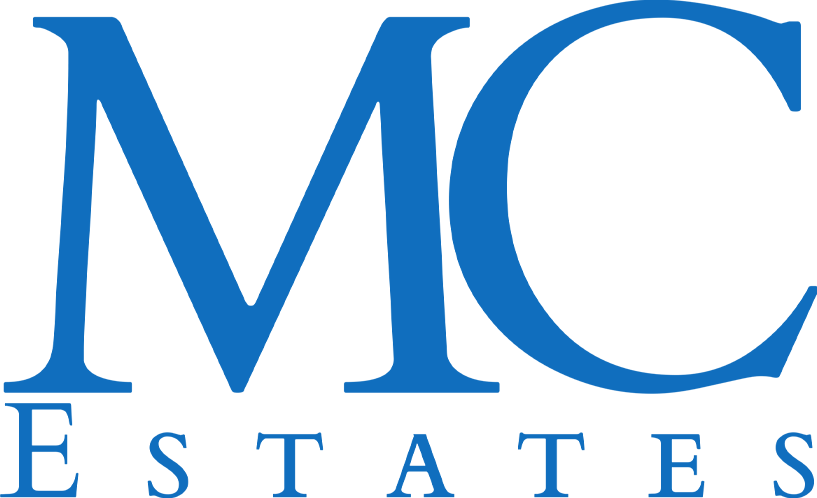Guide to Financing and Mortgaging Properties on the Costa del Sol
Buying property on the Costa del Sol is a popular choice for both residents and non-residents, offering a vibrant lifestyle, stunning landscapes, and lucrative investment opportunities. However, financing and mortgaging properties in this region can vary depending on your residency status and nationality (EU or non-EU). Here’s a detailed guide covering everything you need to know.
-
Overview of Property Financing in Spain
- 70%-80% of the property’s value for residents.
- 60%-70% of the property’s value for non-residents.
-
Financing Options
- Fixed-rate Mortgages: The interest rate remains constant throughout the term.
- Variable-rate Mortgages: The interest rate is linked to the Euribor and fluctuates over time.
- Mixed-rate Mortgages: A combination of fixed and variable rates (e.g., fixed for the first few years, then variable).
-
Mortgages for Residents
- Maximum Loan-to-Value (LTV): Up to 80% of the property value.
- Term: Typically up to 30 years or until the borrower reaches 70-75 years of age.
- Documents Required:
- Valid ID (e.g., NIE, DNI).
- Proof of income (e.g., employment contract, payslips, tax returns).
- Bank statements (last 6-12 months).
- Debt-free certificate (if applicable).
- Property details and valuation report.
-
Mortgages for Non-Residents
- Maximum LTV: Typically 60%-70%.
- Term: Up to 25-30 years, depending on age.
- Documents Required:
- Valid passport and NIE (Foreigner Identification Number).
- Proof of income (e.g., salary slips, tax returns).
- Bank statements (last 6-12 months).
- Debt-to-income ratio (DTI): Banks prefer DTI below 35%.
- Proof of other assets or liabilities.
-
Differences Between EU and Non-EU Buyers
-
- Easier access to financing due to shared financial standards and agreements within the EU.
- Simpler residency process if planning to live in Spain.
- Additional legal steps are required to obtain NIE.
- Possible tax implications depending on bilateral agreements between Spain and the buyer’s home country.
Taxes and Costs Associated with Buying Property
When buying a property on the Costa del Sol, consider additional costs:
- Transfer Tax (ITP): 8%-10% for resale properties.
- VAT (IVA): 10% for new properties + 1.5% stamp duty.
- Notary Fees: 0.5%-1% of the purchase price.
- Land Registry Fees: 0.5%-1% of the property price.
- Mortgage Fees:
- Arrangement fee: ~1% of the loan amount.
- Valuation fee: €300-€600.
- Stamp duty on the mortgage: 1%-2%.
- Mortgage Fees:
- Legal Fees: 1%-2% of the property price for a lawyer.
Please budget for between 10-14% of the purchase price in total to cover additional costs.
Steps to Secure a Mortgage
- Pre-Approval: Obtain a mortgage pre-approval from a Spanish bank to know your borrowing capacity.
- Property Selection: Choose your desired property and negotiate terms.
- Valuation Report: Conduct an official property valuation via the bank.
- Mortgage Agreement: Review and sign the mortgage offer with the bank.
Purchase Completion: Sign the sale and mortgage deeds at the notary.
We work with a trusted mortgage advisor who can help you with this.
Key Considerations for Buyers
Currency Exchange for Non-Euro Buyers
Fluctuations in exchange rates can impact non-euro buyers. Consider using foreign exchange specialists to lock in favorable rates.A good exchange rate with a foreign exchange specialist could save you a considerable amount of money.
Legal Representation
Hiring a Spanish property lawyer ensures smooth transactions and compliance with local laws. We can recommend a trusted Spanish lawyer to help with all your legal matters.Insurance
Mortgage providers require life and home insurance policies. Comparing insurance quotes is recommended.Best Banks for Mortgages on the Costa del Sol
Popular Spanish banks offering competitive mortgages include:- Santander
- BBVA
- CaixaBank
- Sabadell
- Bankinter
FAQs
Can I get a mortgage in Spain if I’m self-employed? Yes, but you’ll need to provide additional documentation such as tax returns, proof of income consistency, and bank statements.How long does it take to get a mortgage approved? It typically takes 4-8 weeks to finalize a mortgage in Spain.
Are interest rates higher for non-residents? Yes, non-residents often face higher interest rates compared to residents due to increased risk.

